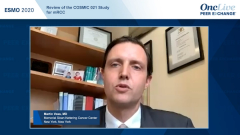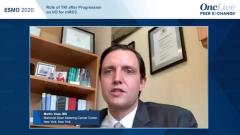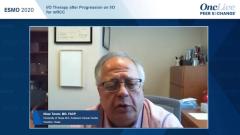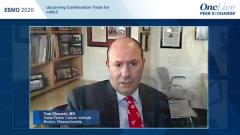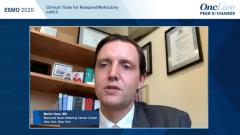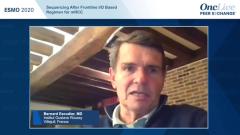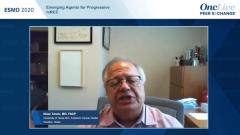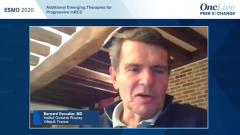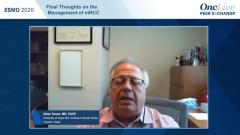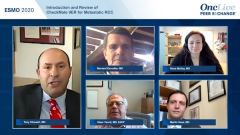
Emerging Agents for Progressive mRCC
Episodes in this series

Transcript:
Toni Choueiri, MD: Let’s move to new drugs and new pathways with Dr Tannir, who’s very much involved in the glutaminase inhibitor. Can you give us the background about glutaminase inhibitor. And the 2 studies that are ongoing, 1 with everolimus presented in combination and 1 with cabozantinib?
Nizar Tannir, MD, FACP: This is an exciting MOA [mechanism of action]. If the study CANTATA, which hopefully will be out by the end of the year, is positive, we will have a new agent, the first in its class. As we know, a normal cell will utilize glucose efficiently through black lysis and produces energy from the TCA [tricarboxylic acid cycle] cycle. A cancer cell has an abnormal glucose metabolism because the glucose taken up by the Warburg phenomenon produces lactate. As a result, a cancer cell, because of the abnormal inefficient production of energy because of the Warburg effect, will increase its glutamine utilization. Many tumors have been tested for glutaminase expression and have high glutaminase expression. What does glutaminase do? Glutaminase is an enzyme that converts glutamine to glutamate, which is used in the TCA cycle to produce energy. This drug, CB-839, is named telaglenastat, and it blocks the conversion of glutamine to glutamate because it inhibits this enzyme, glutamine S1. Two studies were conducted. The first 1 was a randomized trial—phase 2, small study. It started as a 252-patient trial but then it was modified and made into a smaller randomized phase 2 with 2:1 randomization. Everolimus plus CB-839, or telaglenastat, vs plus placebo. It was presented by Chung-Han Lee, a colleague of Martin’s from Memorial [Sloan Kettering Cancer Center], at ESMO [European Society for Medical Oncology Congress] last year. Because of the small size, 69 patients, you can’t really say much about the results except that there was a signal—a hint that the combination telaglenastat plus everolimus produced median PFS [progression-free survival] of 3.8 months in heavily, pretreated patients, compared with everolimus plus placebo, at 1.9 months.
The CANTATA trial is an ambitious trial. It received breakthrough designation and accelerated approval from the FDA that is positive. It’s for second and third line. Patients had maximum of 2 lines of prior therapy including VEGFR TKI and immune checkpoint inhibitors.
Transcript Edited for Clarity


